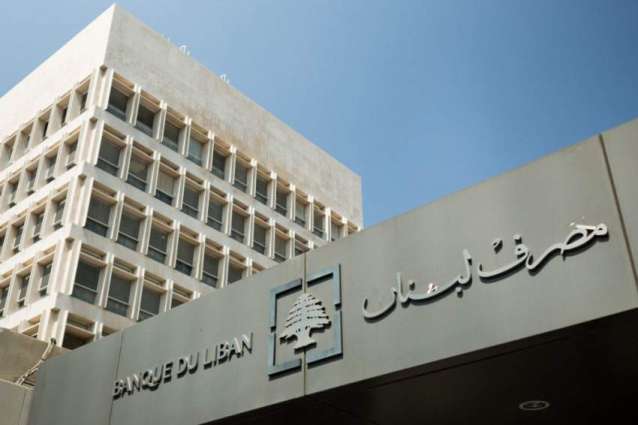Banks operating in Lebanon are now obliged to fix the maximum interest rates on foreign currency deposits at 5 percent and on deposits in national currency at 8.5 percent for six months, Lebanon's Central Bank decreed in a circular published Wednesday
BEIRUT (Pakistan Point News / Sputnik - 04th December, 2019) Banks operating in Lebanon are now obliged to fix the maximum interest rates on foreign currency deposits at 5 percent and on deposits in national currency at 8.5 percent for six months, Lebanon's Central Bank decreed in a circular published Wednesday."Banks operating in Lebanon are required to set a maximum rate on deposits that will be opened or extended from December 4, 2019 in the following order: 5 percent on deposits in foreign currency and 8.5 percent on deposits in Lebanese Pound," the circular read.
According to the document, as of December 4, banks will have to pay interest rates on investments half in Lebanese Pounds and half in US Dollars as an exceptional measure for six months.
The Central Bank, in turn, will pay to banks operating in Lebanon 50 percent in US dollars and 50 percent in Lebanese pounds for their loans.
Prior to the adoption of the new rules, deposit rates at Lebanese banks were not regulated and set by each bank independently. On average, the percentage on large deposits in dollars was about 8 percent.
On Friday, Lebanese President Michel Aoun convened an emergency meeting to find solutions to overcome the economic crisis. The meeting was attended by various acting ministers, Central Bank Head Riad Salameh, head of Banks Association Salim Sfeir and representatives of Lebanese business circles. The president authorized the head of the Central Bank to develop mechanisms that can stabilize the country's banking sector without harming depositors.
The economic and financial situation in Lebanon continues to deteriorate. The banking sector has been suffering shortages in currency, financial transfers to foreign accounts have been suspended and the issuance of dollars was limited to US $1,000 per week. Private business owners have begun refusing to accept payment by bank transfer, instead demanding cash. At the same time, the pound to dollar exchange rate for the first time in 30 years began to fluctuate on the black market about two months ago and has reached the level of 2,000-2,100 pounds per dollar, while the Central Bank continues to maintain the previous exchange rate of 1,515 pounds.
Peaceful anti-government demonstrations have been taking place throughout Lebanon since October 17. The protesters primarily demand economic reform and prosecution of all officials involved in corruption schemes. On October 29, the government of Saad Al-Hariri resigned, but demonstrations did not stop thereafter. The country has been in a political vacuum for a month now, and local authorities cannot yet agree on the appointment of a new prime minister capable of forming a government that will satisfy all political parties and the popular movement.




